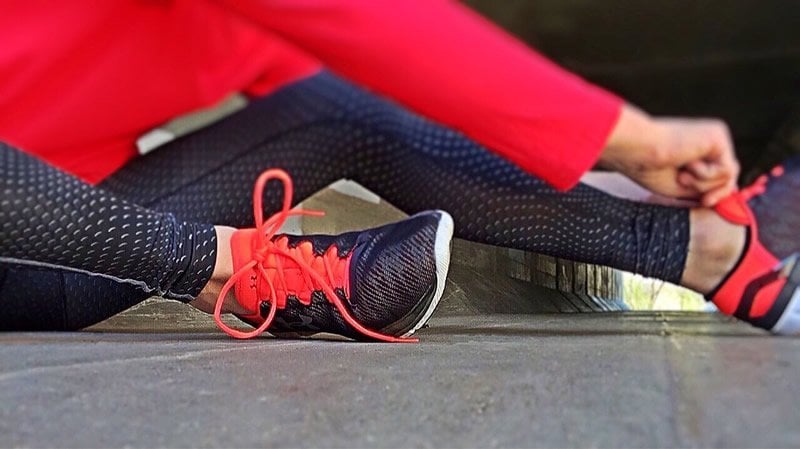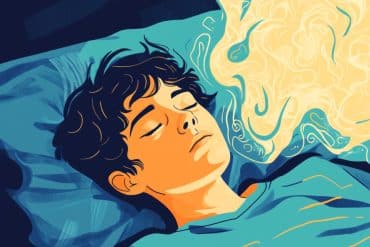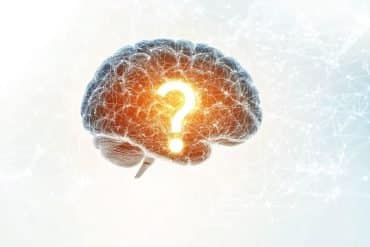Summary: Not only does exercise help burn those extra calories, but it can also have a protective effect against overeating, a new study reports.
Source: Drexel University
Following a dietary weight loss program can be difficult. Many factors trigger diet lapses, which can lead to weight loss failure. Experts disagree on whether physical activity increases risk or protects against diet lapses. While some studies show exercise leads to overeating by increasing appetite and/or a person’s justification for eating, other studies show exercise regulates hunger and may help reduce overeating.
Researchers from the Center for Weight, Eating and Lifestyle Science (WELL Center) in the College of Arts and Sciences at Drexel University found exercise to be a protective factor in a study where participants in a weight loss program, who were following a reduced-calorie diet, engaged in exercise in their real-world environments.
“Almost all behavioral weight loss programs prescribe exercise because of its health benefits and because it expends energy or ‘burns calories,’” said Rebecca Crochiere, a graduate student in the College of Arts and Sciences and lead author of the study. “Interestingly, our study suggests that exercise may also aid in adhering to a reduced-calorie diet, perhaps through improved regulation of appetite or eating behavior. It adds another reason to engage in exercise if one is seeking weight loss.”
The study found that exercise was protective against overeating. When participants did not engage in exercise, the risk of overeating in the following hours was 12 percent. Whereas when participants engaged in 60 minutes of exercise, the risk of overeating was cut by more than half, to five percent.
For every additional 10 minutes of exercise a participant engaged in, the likelihood of overeating decreased by one percent in the few hours following exercise.
Researchers collected data from 130 participants using novel methods, like ecological momentary assessments, or brief surveys, that were delivered to participants’ smartphones multiple times a day to measure overeating and hip-worn fitness trackers to measure exercise.
“These findings can help researchers to better understand when participants who are seeking weight loss are at risk of overeating,” said Crochiere. “It can inform the development of treatments that prevent overeating and facilitate weight loss.”

Crochiere cautioned these findings represent patterns observed across the sample as a whole; a goal for future research is to investigate if the effect of exercise on eating behavior differs from person to person.
The results also hinted that the effect of exercise on eating behavior may depend on the intensity of the exercise, with light (versus moderate-to-vigorous) physical activity showing the strongest protective effects against overeating, though more research is needed to support this finding, said Crochiere.
The study, “Is Physical Activity a Risk or Protective Factor for Subsequent Dietary Lapses Among Behavioral Weight Loss Participants?” was published January 2020 in Health Psychology. It was funded by the National Institute of Diabetes and Digestive and Kidney Diseases. Co-authors include Elizabeth Lampe, graduate student; Stephanie Manasse, PhD; Meghan Butryn, PhD; Evan Forman, PhD, all of Drexel University; Stephanie Kerrigan, PhD, of Yale University; and Ross Crosby, PhD, of the Neuropsychiatric Research Institute.
Although this study has concluded, the WELL Center continues to recruit for other weight management studies, including a study investigating effective cognitive and behavioral components of weight loss.
Source:
Drexel University
Media Contacts:
Annie Korp – Drexel University
Image Source:
The image is in the public domain.
Original Research: Open access
“Is physical activity a risk or protective factor for subsequent dietary lapses among behavioral weight loss participants?”. Crochiere, Rebecca J.,Kerrigan, Stephanie G.,Lampe, Elizabeth W.,Manasse, Stephanie M.,Crosby, Ross D.,Butryn, Meghan L.,Forman, Evan M.
Health Psychology doi:10.1037/hea0000839.
Abstract
Is physical activity a risk or protective factor for subsequent dietary lapses among behavioral weight loss participants?
Objective: Dietary lapses drive weight loss failure, and specific factors influence risk of lapse. Physical activity (PA) may be one such risk factor, though whether PA increases or decreases appetite, and thus risk of lapse, is unclear. In fact, most studies examining the relation between PA and energy intake are limited by use of laboratory-based settings, intensive PA manipulations, and healthy-weight samples. This study aimed to maximize ecological validity by examining the extent to which free-living PA of various intensities prospectively predicts same-day dietary lapses among individuals enrolled in a weight loss program.
Method: Participants were 130 adults with overweight/obesity in a behavioral weight loss treatment instructed to follow a PA and dietary prescription. At midtreatment, moderate-to-vigorous PA (MVPA) and light PA were measured using hip-worn Actigraph GT3X+ accelerometers (Actigraph, Pensacola, FL). Lapses were assessed using ecological momentary assessment. Within-subject total PA (b = −0.012, SE = 0.005, p = .01) and light PA (b = −0.014, SE = 0.006, p = .01) negatively predicted lapse. MVPA followed the same pattern, but the effect was not statistically significant (b = −0.013, SE = 0.009, p = .12).
Conclusion: This study was the first to investigate if objectively measured PA prospectively predicts lapse from a weight loss program. Results suggested that for every additional 10 min of total PA one engaged in, the risk of lapse decreased by 1%.






